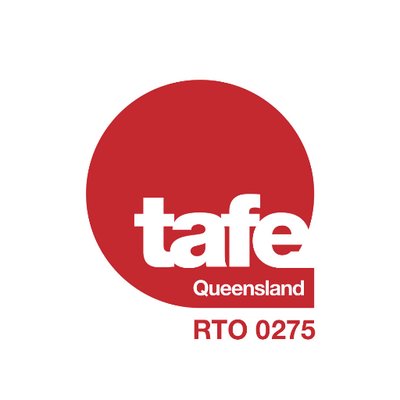Globalisation, automation and rapidly changing needs mean the future of employment will probably look very different to now. In fact, many current careers won’t exist in the next 10 to 20 years. So, it’s critical that students ask the important question: ‘Will my chosen study path lead to strong job opportunities after graduation and beyond?’
In this series we’re exploring a range of occupations forecast to have strong employment prospects in the future. Some careers in the tech industry are quickly emerging. Plus, there are other existing careers that will also have an important place in the employment opportunities of tomorrow.
Environmental science is an incredibly wide-ranging, yet increasingly important, industry. As environmental concern grows, there’s a burgeoning need for qualified environmental scientists to help tackle global challenges head-on.
What is environmental science?
Environmental science is a broad discipline encompassing a varied selection of study areas and employment opportunities.
Generally speaking, an environmental scientist’s role is to research, devise, implement and direct policy and plans for environmental management. This includes managing natural resources, research and testing, planning and restoration, and advising organisations on their impact and environmental policy obligations.
You do need formal qualifications to be considered for an entry-level position, and many environmental scientists have post-graduate qualifications in their chosen area of expertise.
Why environmental science?
Environmental science offers you the chance to work on a range of global issues, like climate change, public health, or waste.
Depending on which industry you choose to work in, environmental science can be a varied, interesting and rewarding career. Because it’s such a broad area of study with several pathways to employment and so many related career paths, it’s one of the few subjects that allows you to hone your skills and choose your preferred speciality as you study and learn.
Perhaps conservation is your passion, or your forte is management. Maybe you’re more interested in policy and politics, or are keen to explore strategy. Otherwise, you could learn more about educational program delivery or even research. With environmental science, the sky really is the limit.
The opportunities are endless
The Australian Government classifies the area of environmental science as growing strongly over the next five years. Between 2018 and 2023, it is expected to increase from 25,300 people working in the industry to 28,100. Weekly pay is over $300 higher than the average weekly income, although hours might be slightly longer depending on the role and the industry you choose.
Because environmental science encompasses such a broad range of industries and occupations, it can be assumed that the opportunities available are also varied, giving you the fairly unique chance to choose the industry and role you’d like to work in. It’s also helpful to note that career progression and lateral movement between industries is common and could contribute to a long and fulfilling career with limitless opportunities for growth and change.
What’s involved?
Because there’s such a wide variety of roles associated with this area of study, there is also a lot of opportunity to choose the type of job that will help you design the day-to-day work life you dream of.
If working in a laboratory appeals to you, you might consider research-based roles that involve answering big questions through scientific methods and designing new strategies based upon your findings. If you’d love a fast-paced office job with a big-name company, perhaps a role focused on policy and project management is more your style. The beauty of this versatility is that you can take your time to decide as you continue to explore new areas through study, research and experience.
On the job
There’s so much on offer as far as employment goes. Here are just some of the roles you can take on:
- Environmental technician
- Laboratory assistant
- Water policy officer
- Agricultural scientist
- Natural resource manager
- Landcare coordinator
- Environmental health officer
- Environmental engineer
- Environmental consultant
- Marine biologist
- Environmental education officer
- Waste management coordinator
- Estate manager
- Toxicologist
- Transport/town planner
- Conservation scientist
- Hydrologist
- Water quality scientist
- Environmental health and safety officer
- Environmental advisor
- Ecologist
- Meteorologist
- Geologist
- Contamination manager
- Teacher/lecturer
If you’re wondering where to start, think of the scientific subjects that interest you and go from there. All of these roles come under the banner of ‘environmental science’ and require similar sets of technical skills. Don’t be put off by the scope of this industry, but instead contact course providers and find out how they can help you take the first steps on your study journey.
Important skills and knowledge
When preparing for an environmental science career, important study topics include English, mathematics, customer service, clerical skills (computers and software, file management and other office work), and biology.
Like all careers, environmental science also requires you to build, and actively put into practice, various soft skills. The soft skills of particular importance include time management, planning and prioritising responsibilities, clear communication, problem-solving, and effective organisation. These types of skills are naturally learned and improved as you study and work with others, but it’s worth keeping them in mind when deciding on the right course of study for you.
Make sure you take the opportunity to develop your soft skills further whenever you can and consider other valuable opportunities for learning such as work experience, internships, volunteering, and environmental group membership and activities. Only a few courses will offer you the opportunity to study practical skills, which is certainly important to consider.
Education requirements
There are plenty of study options available to build up your skillset and qualifications. To get you started on the path to an environmental science career, a great option is the Certificate IV in Laboratory Techniques with TAFE Queensland. This specialty certificate takes 12 months and helps you put theory into practice, giving you important technical skills including how to record samples, prepare samples for testing, perform scientific calculations, interpret results, and maintain laboratory equipment.
Successful completion of this course will qualify you to work as a technician or technical assistant in a range of fields, including environmental science.
If you do decide you want to go on to further study at university, TAFE Queensland has pathway options to help you get there. You can take full advantage of these and enrol in a degree with one of their partner universities.






